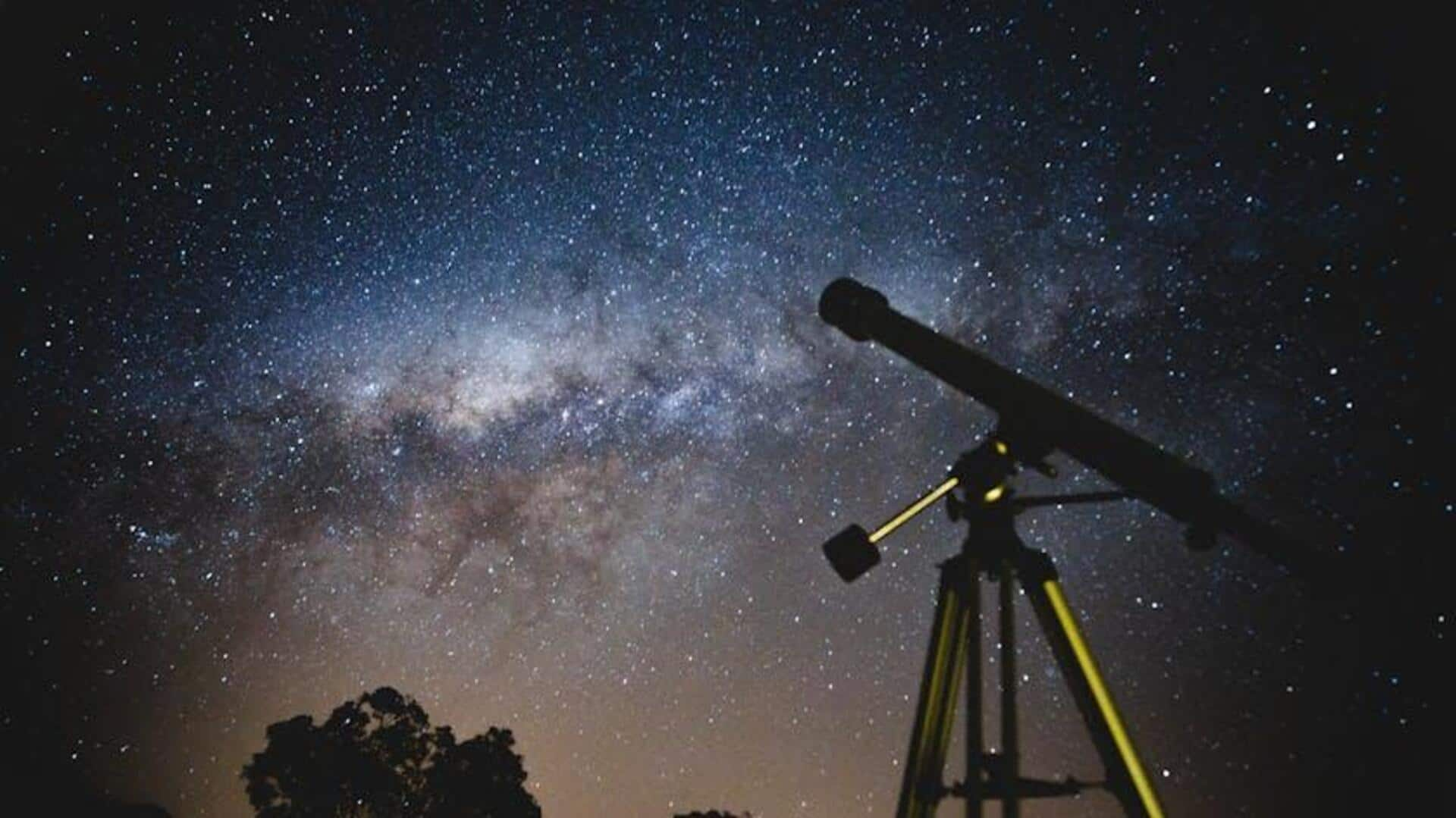
Space enthusiasts: Don't miss this planet-watching experience
What's the story
The universe has always held a certain mystique for mankind, and thanks to modern telescopes, that sense of wonder is no longer limited to the realm of professional astronomers. Dwarf planet observation retreats offer the opportunity to venture beyond Pluto, providing a deep dive into the solar system's enigmatic world. Combining education, adventure, and unparalleled stargazing experiences, these retreats are the perfect choice for space enthusiasts.
Timing & location
Choosing the right time and location
The visibility of dwarf planets is highly dependent on their position relative to Earth and the Sun. They are best viewed at opposition, hence, locations with minimal light pollution are key. High-altitude sites like Mauna Kea in Hawaii or the Atacama Desert in Chile, with their clear skies and stable weather, are ideal for observing these elusive celestial objects.
Gear up
Essential equipment for dwarf planet observation
To spot dwarf planets, you would need a telescope with at least an eight-inch aperture. But for serious observations, larger apertures and high-quality eyepieces are a must. Plus, equatorial mounts are super helpful for tracking objects across the sky more smoothly. And don't forget to invest in a good star chart or an app! They're your secret weapon for finding these distant worlds.
Guided exploration
Participating in guided tours
For beginners or those looking for a more guided experience, joining organized tours or retreats can be very beneficial. These tours grant you access to high-powered telescopes and the guidance of expert astronomers who can teach you the tricks of the trade when it comes to spotting dwarf planets. Some retreats also offer astrophotography workshops, so you can take home your own photos of these distant and mysterious objects.
Community gazing
Connecting with fellow astronomy enthusiasts
One of the most fulfilling parts of going to a dwarf planet observation retreat is meeting other people who share your passion for astronomy. Exchanging observations and advice not only helps you learn, but it also creates a sense of camaraderie among attendees. Many retreats host nighttime socials where you can talk about your discoveries and share stories under the starlight.
Stay safe
Safety tips for night-time observations
Stargazing at night in remote locations necessitates extra precautions to maintain safety. If you're heading out alone, always let someone know your plans. Carry enough supplies, including water, snacks, warm clothing, and a first-aid kit. A good flashlight with a red light mode is crucial for preserving night vision while moving around in the dark near your observation spots.